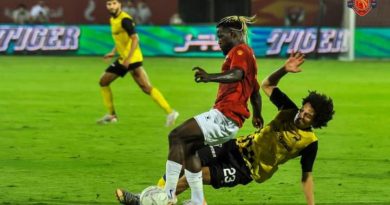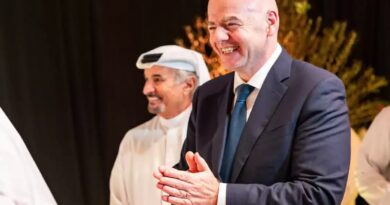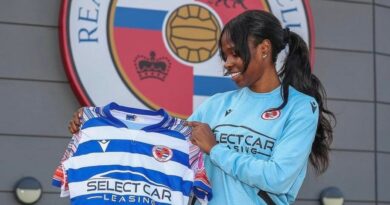The interview: Coach Ashu Besong raising the next generation of African stars
Raising the next generation of African football stars is gaffer, Ashu Besong – who currently is the head of national youth teams in Djibouti.
Prior to his appointment in Djibouti last year, Mr. Ashu formerly harnessed talents as coach of Cameroon’s U20, and then, went on to register a successful stint as head of national youth teams in South Sudan.
After his passage in South Sudan, performances in youth categories have skyrocketed; South Sudan’s U20 qualified and played the U20 AFCON, making the quarter-finals for the first time of asking in 2023.
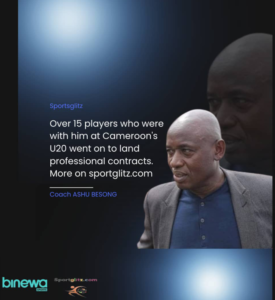
With the Junior Lions, coach Ashu qualified for the 2017 U20 AFCON but it has been the smooth development of players that continue to make waves. More than 15 players have become professionals, with most, turning into established Cameroonian internationals.
sportglitz handled an exclusive with Mr. Ashu to understand in-depth, how he has been able to trailblaze on player development in and out of Africa, and he had the following revelations to make;
What are your objectives in your role as Head of National Youth teams in Djibouti?
Our objective is to get the kids competitive, put a platform where they can produce good players and be able to play against other CECAFA countries and possibly qualify for major tournaments. I signed a year’s contract. From the onset, I agreed to come and set things up.
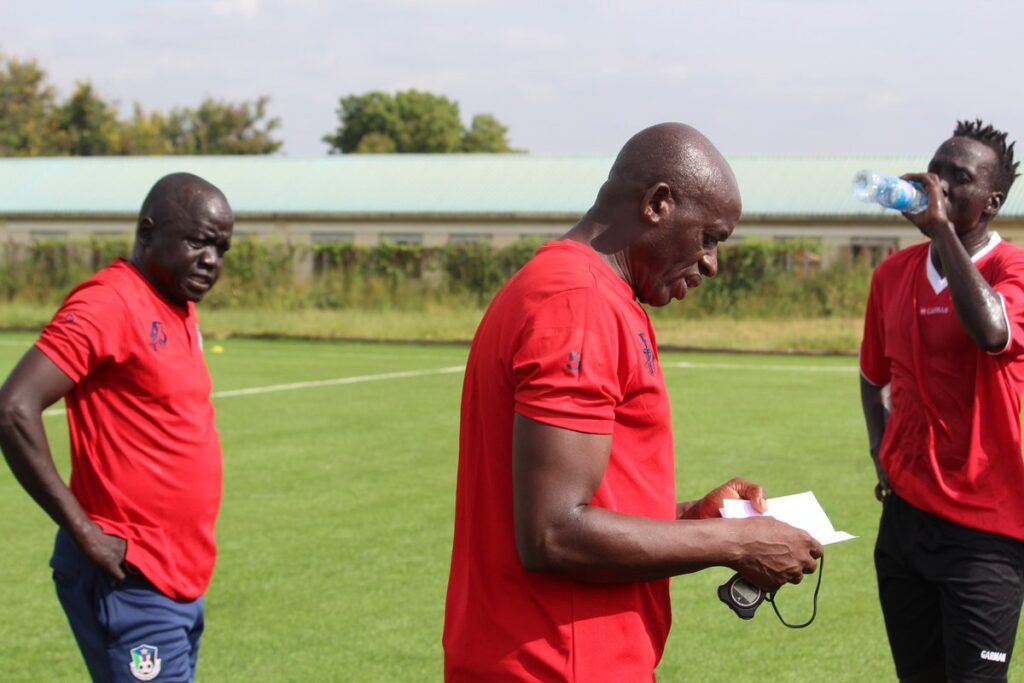
Difficult working environment
Djibouti its not an environment where I will want to be for too long. Having done my apprenticeship with youth and senior teams, I’ll like to equally test my muscle with senior teams.
How the experience has been so far
It has been very interesting and challenging because of the position of Djibouti; the set-up, geographical location and quality of players. Where Djibouti is, on the Fifa and CAF ranking did not make it an easy task.
What we have tried to do
When I came in, we tried to set up youth leagues, did some scouting and recruitments for young players, put an all round training session for the U15s, the U17s and U20s.
What we have done with the local coaches
We tried to educate the local coaches. Surprisingly, the most licensed coach in Djibouti possesses a CAF B license. Working with Elite players requires a certain qualification and knowledge.
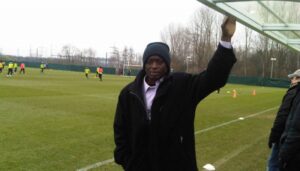
Rate the work done so far
We have done a good job so far. A lot of things are in place. The youth leagues are on. The youth national teams have been consistently training.
Few of the local clubs have already assigned most of the U18s, now U20s. Our main objective is to get at least one of these youth teams qualify for a major tournament. However, we’ve put a lot of things in place that, when I’m not there in the coming years, the country will be able to carry on and produce competitive players.
About my time in South Sudan
When I look at South Sudan, I’m always pleased and happy for the country. There are lovely people. They’ve gone through a lot. Its been a war torn area for more than 25 years.
Some of those kids come from poor background. When I look at them today, I am so happy. When we went to South Sudan, I was lucky to meet the president, Mr. Amin Francis. He was great, humble and loved football. He could go an extra mile to see things done for his country.
When I got there in 2019, there wasn’t even a training field. After joining in, we had to play a game a month later. We trained on rough ground.
A training field that changed the narrative
I told Mr. Francis that instead of camping outside of South Sudan, we could use that money and get an artificial field that even clubs could use.
He bought into the idea and within 3-4 months we got a field. That is when everything changed. When you develop infrastructure, you develop football. I could talk about South Sudan even for the next 3 days. Its a gifted country that has talented young players, very athletic with a good height.
In years to come, let’s not be surprised to see south Sudan dominating sports in Africa, not just football. They’re already doing very well in basketball.
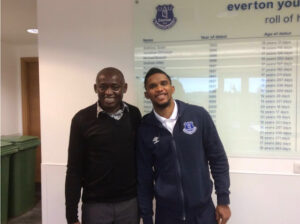
Can the work done with South Sudan be replicated in Djibouti
About replicating the same results in Djibouti, it’s a different culture with different priorities. In Djibouti, most parents prioritize school. They want all their kids to school till University. Football is just leisure. Sometimes when kids are called up for the national selections, they don’t turn up. Their parents want just school and not football. I understand the parents because there is no football idol that the kids could look up to. I hope in years to come, parents can change their mentality.
The kids do mostly street football, which builds incredible technique. If street football pattern is applied in the actual football field, that will be good stuff.
About my time in Cameroon with the Junior Lions
During my time in Cameroon with the U20s, it was something new to me because before then I was out of Africa for a long time. I spent most of my time in Germany, and then the US – before moving over to England with the Leicester U21s.
The opportunity came up during president Tombi A Roko’s tenure. When I look back, it was exciting because I was motivated. I wanted to put in my all as I was coming from a premiership environment with all my knowledge.
I remember when I got to Cameroon we had to play Morocco 8 days later in a friendly. I didn’t know the players. I just had the old list of U20s mixed with U17s. We beat Morocco 1-0 and it was a good start.
When I look back, I think we did a great job with that U20s even though we didn’t win a trophy. When I reflect and see where those players are now, I think it was a brilliant job.
The player who marked my stay with the junior Lions
The player who marked my stay in Cameroon was central defender, Duplex Tchamba.
We had already qualified for the U20 AFCON in Zambia, and then I was going around the country, looking for players that could add something different to the group. I went and watched a third-tier club and saw Duplex. I requested a friendly between that team and the U20, because I wanted to see the lad in a game environment. After the game I told the president that I wanted him with the U20s. His president couldn’t believe – as he instead proposed someone else.
That is how I got Tchamba but his early beginings with the team was filled with mistakes. However, I knew what I was after, and I gave him time to develop. He ended up playing all the games at the U20 AFCON proper.
Some scouts spoke with his president and took him to Europe, where he became a professional player.
He went on to play with the senior national team. Not just him, the likes of: Oum, Tolo, Mbaizo, Hongla, Soni amongst others. Most of those boys went on to be professional players. I remember someone like Ayuk Eric too.

The story of how I got Nohou Tolo to play for Cameroon even under pressure
My team manager came to me when I was in search for a left back. He told me there’s a kid who comes to Cameroon for vacation but plays in the US. I watched his videos and asked that we call him. We called Tolo and Ayuk Eric: it brought about a lot of problems with the federation by then. Everyone complained on the financial constraints of calling up a player from the US. I knew the two players will give us something different; when they arrived, their qualities were afloat others’.
Our first game against South Africa in Zambia (AFCON U20) we were leading 1-0. Tolo caused a penalty and we ended up losing that game 3-1. Then FECAFOOT president, Tombi called for me at his hotel, and he was shouting and warning me against using Tolo. I simply told him that I’ll prefer the youngsters to make mistakes at the U20 and progress to the senior national team having learned and corrected the mistakes.
I told Mr. Tombi that we may not win a trophy, but it’s a learning environment. One thing I took from England was that, we didn’t lay emphasis on youth teams winning games. All that was needed was the right development to change the kids into senior players.
When I scouted players for Cameroon, I looked at the future.
Cameroon is blessed with natural talent
Cameroon is blessed with talent. As a national team coach, you are spoiled for choices. I went to Bafoussam, Bamenda (even when the crisis was on).
We knew what we wanted at every position and that helped even with the goalkeepers. I recall that I had to drop Sylvain Abogo {keeper}, in place of Dande Junior and Omossola because the other two boys had more quality.
It was a collective job
I still congratulate my staff. I was exigent, as I could programme trainings early in the morning or on a hot afternoon. They basically didn’t complain and just obeyed. The project was a big success. It wasn’t about the trophies won, but talents produced for the senior level. Etaka Preston, Karl Ndedi, Mpidi, and a chunk of that team – over 15 of them, now play professional.
Returning to work in Cameroon
Cameroon is my motherland, my fatherland, it’s my country and home. It is always an honor to serve and work for my country.
If I could leave Leicester by then to go work for the U20s, then I don’t see why I can’t abandon any club or country to work for Cameroon.
I’m always ready and open. Anytime Cameroon calls, even in the middle of the night, I’ll pick up.
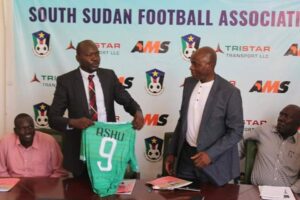
The experience I’ve gained on the African continent
I have gathered a lot of experiences with the trips I’ve made for work purposes across the continent.
In 2019 when I came, I could barely understand the system and what was going on in African football. With my years of working around and playing matches with different countries, i’ve gathered enough knowledge.
I made friends; everyday I talk to about 8 to 9 persons in South Sudan. I now know how it feels dealing with different cultures and mentality.
If I get the chance to return to Cameroon, things will be more better and different!


